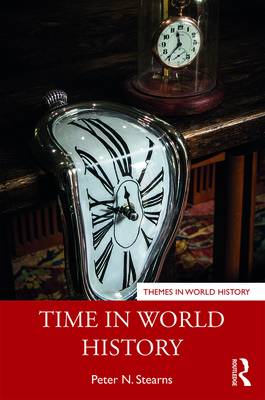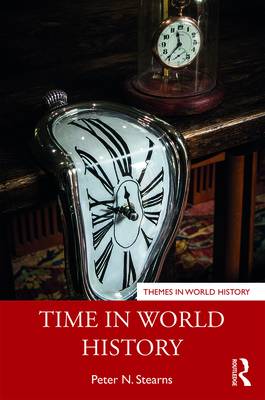
- Afhalen na 1 uur in een winkel met voorraad
- Gratis thuislevering in België vanaf € 30
- Ruim aanbod met 7 miljoen producten
- Afhalen na 1 uur in een winkel met voorraad
- Gratis thuislevering in België vanaf € 30
- Ruim aanbod met 7 miljoen producten
Omschrijving
In this book, Peter Stearns presents the fascinating concept of time through a global historical lens. Covering both calendrical time and clock time, the volume shows how significant changes in conceptions of time are in world history, as they translate many key historical developments from religion to industrialization, into daily experience.
The book explores why and how early societies became interested in measuring time, as well as explaining the causes and ongoing consequences of the modern sense of time. The author compares different societies and cultures in their attitudes and approaches to time and describes the role of globalization in its development. The volume offers many examples and illustrations to aid readers in their understanding of the advantages and disadvantages of various constructions of time, both in the past and among different groups of people today.
Time in World History will be of interest to students of world history and sociology, introducing readers to historical forces that continue to shape their lives quite directly.
Specificaties
Betrokkenen
- Auteur(s):
- Uitgeverij:
Inhoud
- Aantal bladzijden:
- 174
- Taal:
- Engels
- Reeks:
Eigenschappen
- Productcode (EAN):
- 9780367434946
- Verschijningsdatum:
- 5/12/2019
- Uitvoering:
- Hardcover
- Formaat:
- Genaaid
- Afmetingen:
- 152 mm x 229 mm
- Gewicht:
- 417 g

Alleen bij Standaard Boekhandel
Beoordelingen
We publiceren alleen reviews die voldoen aan de voorwaarden voor reviews. Bekijk onze voorwaarden voor reviews.









